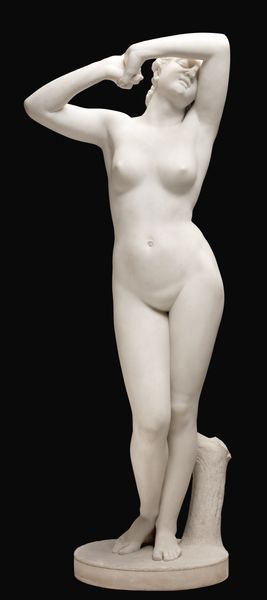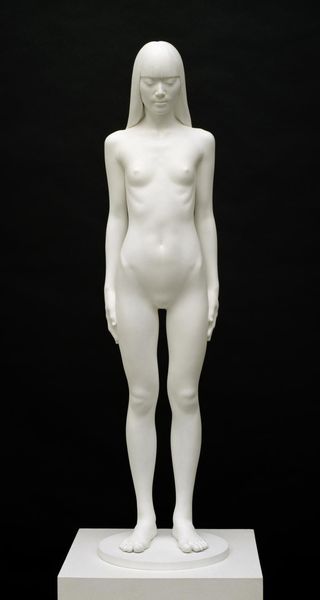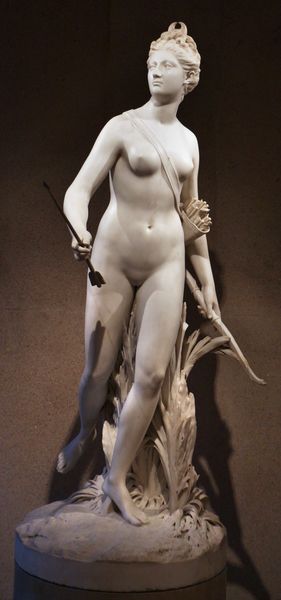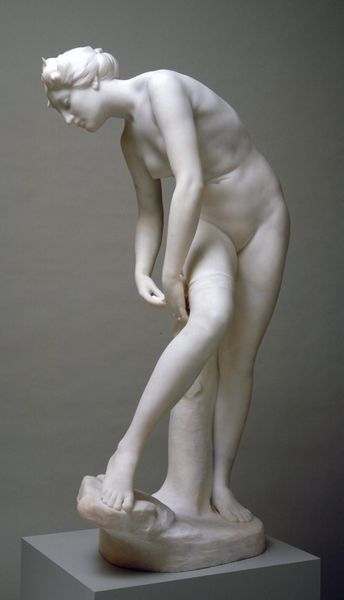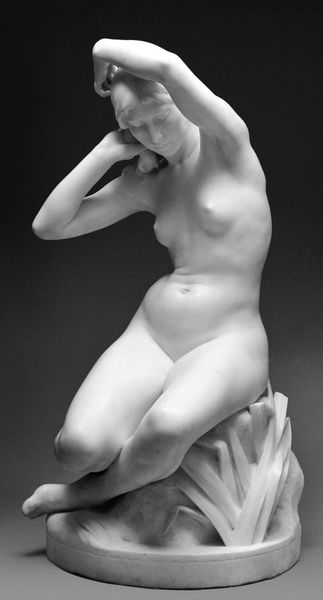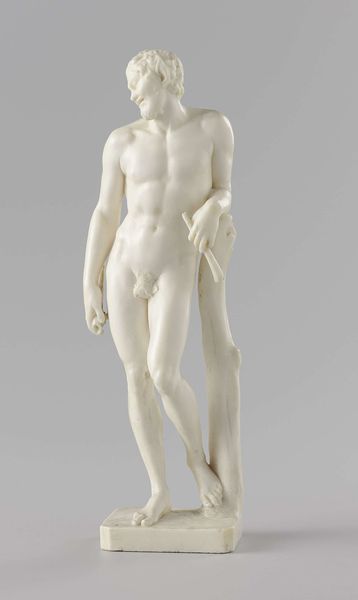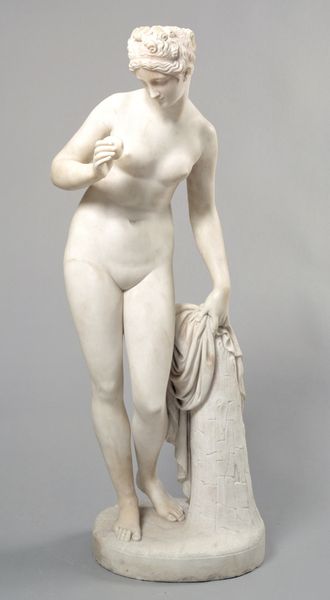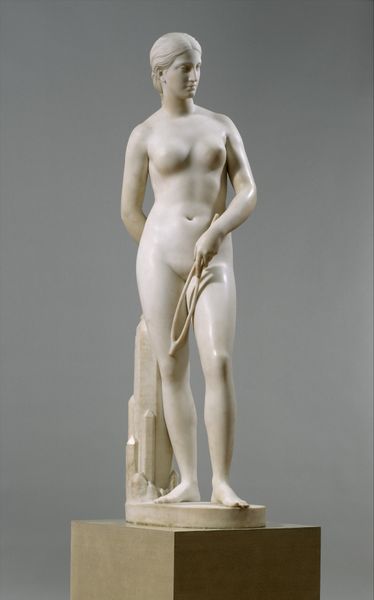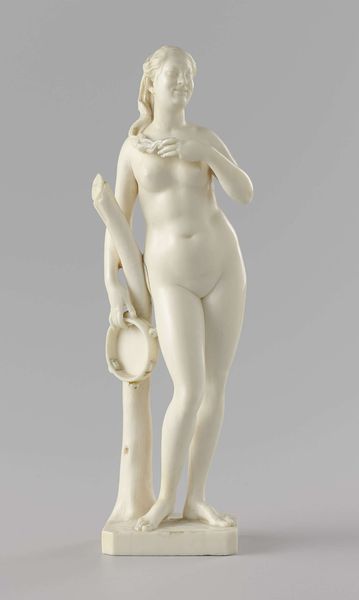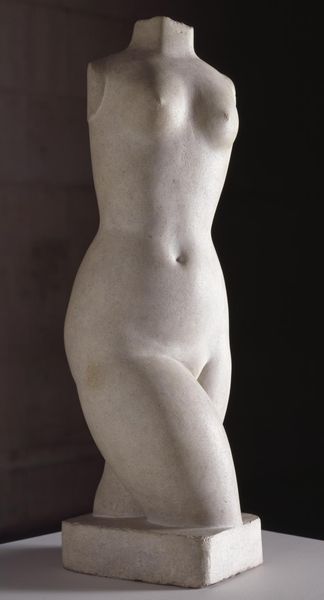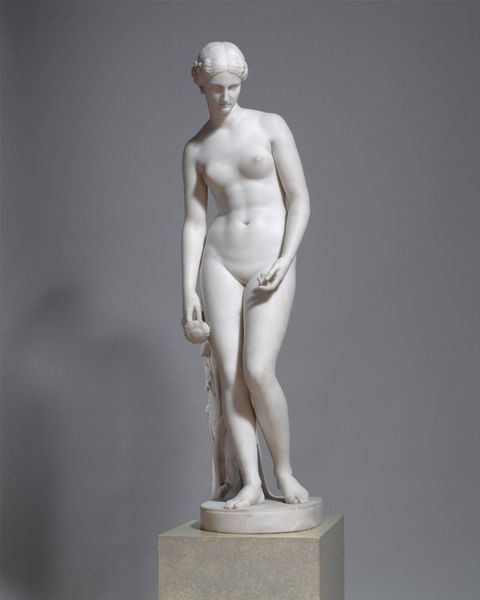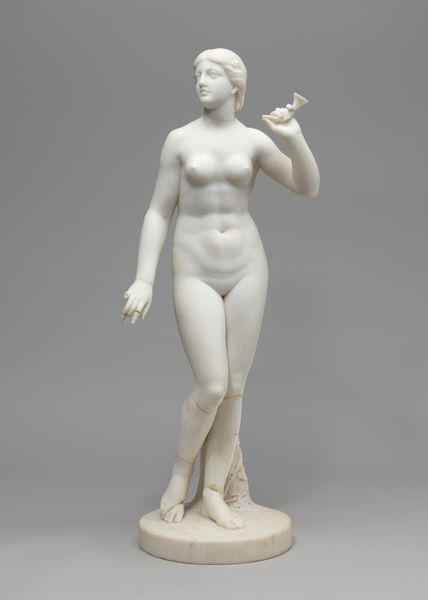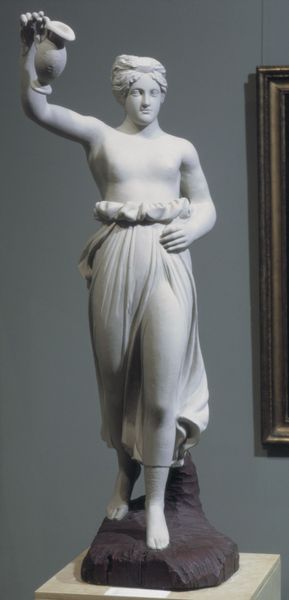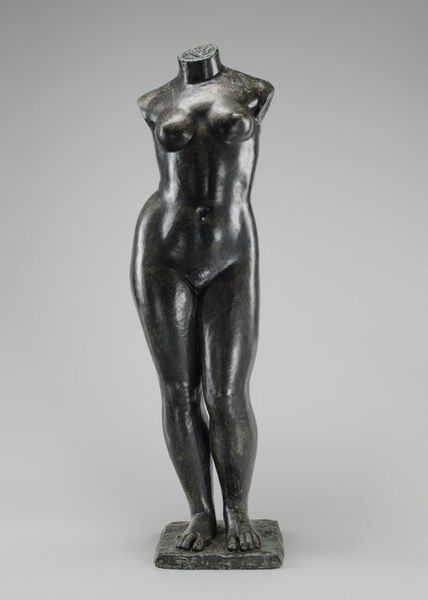
Dimensions: object: 1750 x 490 x 430 mm, 225 kg
Copyright: CC-BY-NC-ND 4.0 DEED, Photo: Tate
Editor: Here we have "Eve" by Sir Thomas Brock. Carved from marble, she seems lost in thought. What social narratives do you see reflected in this depiction? Curator: This work reflects the Victorian era's complex relationship with female representation, doesn't it? Eve embodies both innocence and a veiled sensuality, a dichotomy that speaks to the constraints and expectations placed on women. How does her posture strike you in terms of power dynamics? Editor: She seems almost ashamed, certainly not empowered. Curator: Exactly. Brock's "Eve" isn't merely a biblical figure; she’s a symbol of societal anxieties surrounding female sexuality and knowledge. Considering this, how might a contemporary feminist critique this sculpture? Editor: I see how it perpetuates the narrative of female guilt and submissiveness. Curator: Precisely. It's a reminder that art doesn't exist in a vacuum but actively participates in shaping cultural perceptions. Editor: It's made me think about how these historical depictions still influence contemporary attitudes.
Comments
Join the conversation
Join millions of artists and users on Artera today and experience the ultimate creative platform.
tate 10 months ago
⋮
This sculpture shows the figure of Eve, the first woman in Abrahamic religions, including Christianity, Islam and Judaism. She was traditionally presented as a sensual figure and associated with temptation, but is shown here deep in thought. Her head is bowed and her left arm is placed protectively across her chest, as if in shame. The sculpture was admired in Paris; critics praised its combination of naturalism and spiritualism, as well as its subtlety in modelling and expression of feeling. Brock sculpted many public monuments, including the Victoria Monument outside Buckingham Palace. Gallery label, October 2020
